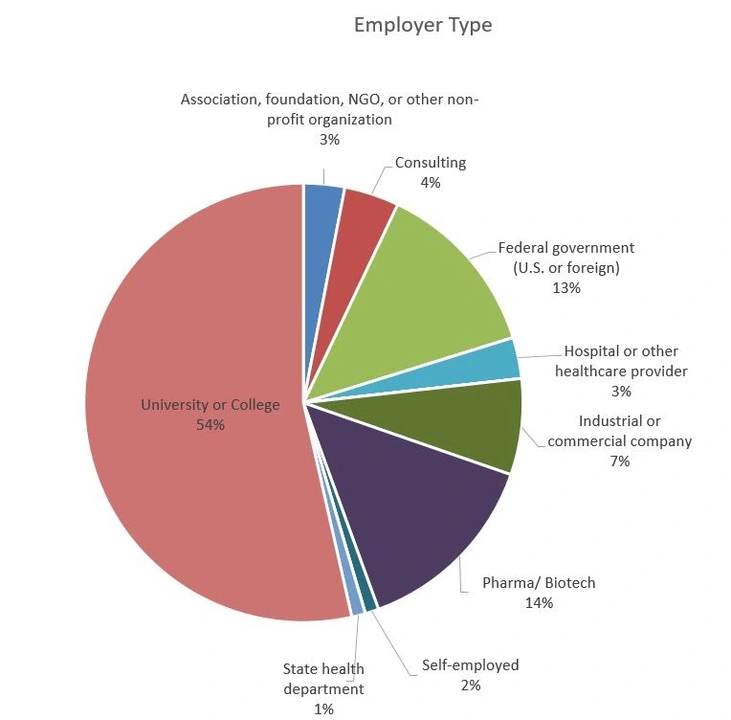What can you do with a degree in public health?

Exploring Career Opportunities with a Public Health Degree
As a public health graduate, I can say that obtaining a degree in this field opens up a world of opportunities for those who are passionate about improving the health and well-being of communities. From working with non-profit organizations to collaborating with government agencies, there are numerous career paths that one can take with a degree in public health.
In this article, I will discuss five potential career paths that you can pursue with a public health degree, including the necessary skills, responsibilities, and job outlook for each role.
Public Health Educator: Empowering Communities Through Education
One of the most rewarding career paths in public health is that of a public health educator. In this role, you will have the opportunity to provide communities with the knowledge and tools they need to lead healthier lives. This involves designing and implementing educational programs, conducting research to stay up-to-date on the latest public health trends, and collaborating with community stakeholders to address health concerns.
As a public health educator, strong communication and interpersonal skills are vital, as you will often be presenting information to diverse audiences. Additionally, having a background in health promotion, community health, or a similar field can be beneficial. Overall, the job outlook for public health educators appears promising, with a growing demand for professionals who can help address pressing health issues.
Epidemiologist: Uncovering the Patterns Behind Diseases
For those with a keen interest in research and data analysis, a career as an epidemiologist might be the perfect fit. Epidemiologists work to understand the causes and patterns of diseases in populations, allowing them to develop effective strategies for prevention and control. This involves collecting and analyzing data, designing and conducting studies, and collaborating with other public health professionals to implement evidence-based interventions.
To succeed as an epidemiologist, you will need strong analytical and critical thinking skills, as well as a solid foundation in biostatistics, research methods, and infectious diseases. Job prospects for epidemiologists are expected to grow in the coming years, particularly as global health concerns continue to arise.
Health Policy Analyst: Shaping the Future of Public Health
If you are passionate about advocating for better public health policies and systems, a career as a health policy analyst may be the right choice for you. Health policy analysts assess the effectiveness of current policies, identify areas for improvement, and recommend new policies to address pressing health concerns. They also collaborate with government agencies, non-profit organizations, and other stakeholders to ensure that policies are implemented effectively.
To excel in this role, you will need to have strong research, analytical, and communication skills, as well as a deep understanding of the political and social factors that influence public health policy. The demand for health policy analysts is projected to grow, as policymakers continue to recognize the importance of addressing health disparities and other public health challenges.
Environmental Health Specialist: Safeguarding Our Environment and Health
For those who are passionate about environmental conservation and its impact on human health, a career as an environmental health specialist may be a great fit. In this role, you will work to identify, assess, and address environmental factors that can affect the health of communities. This includes investigating potential sources of pollution, monitoring environmental conditions, and developing strategies to mitigate health risks.
As an environmental health specialist, having a strong background in environmental science, toxicology, and risk assessment is essential. Additionally, you will need to develop excellent problem-solving and communication skills in order to work effectively with various stakeholders. With growing concerns about climate change and environmental health, the job outlook for environmental health specialists is positive.
Global Health Professional: Addressing Health Challenges on a Global Scale
Last but not least, a career in global health offers the opportunity to make a significant impact on the health and well-being of populations around the world. Global health professionals work in various capacities, such as project managers, researchers, or policy advisors, to address health challenges that transcend national boundaries. They collaborate with international organizations, NGOs, and local communities to develop and implement programs that improve access to healthcare, prevent the spread of infectious diseases, and promote overall health and well-being.
To succeed in global health, you will need a strong understanding of public health principles, as well as the cultural, political, and economic factors that influence health outcomes in different countries. Additionally, language skills and experience working or volunteering abroad can be valuable assets. As the world continues to become more interconnected, the demand for skilled global health professionals is expected to increase in the coming years.
In conclusion, a degree in public health can open up a variety of exciting and impactful career paths. Whether you choose to work as a public health educator, epidemiologist, health policy analyst, environmental health specialist, or global health professional, you will have the opportunity to make a meaningful difference in the lives of individuals and communities around the world.
